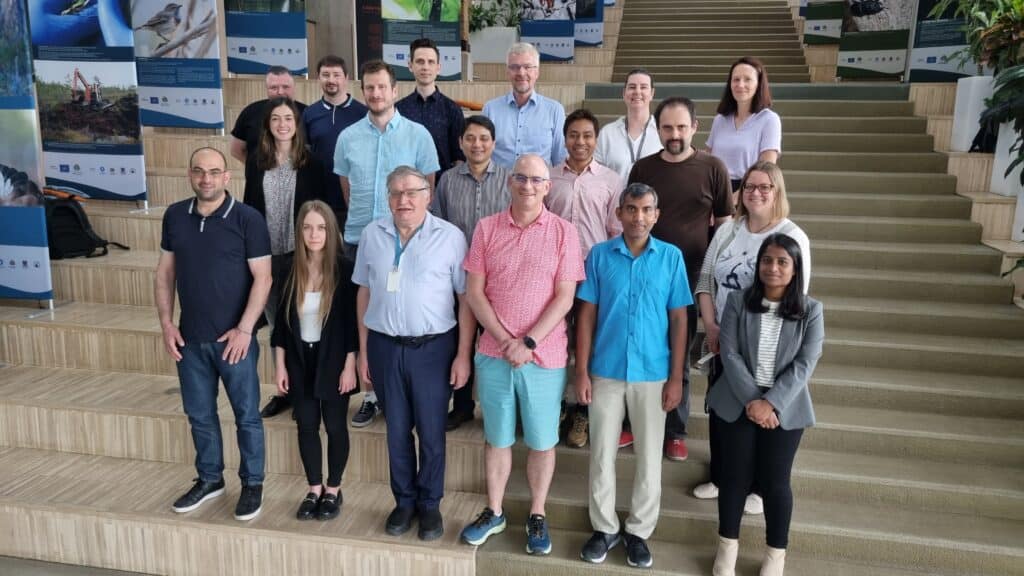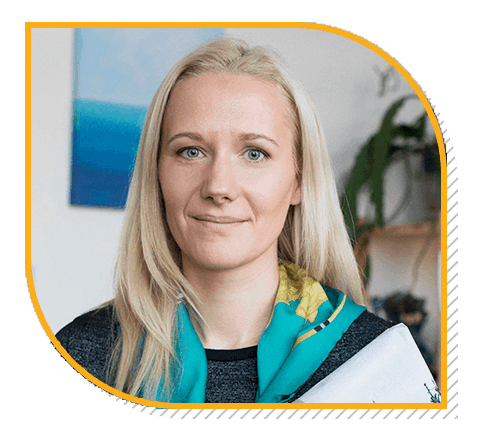Press release originally published by TRANSLATE partner University of Latvia on 26 May 2023 in both English and Latvian.
On 25-26 May, international nanotechnology experts are gathering at the University of Latvia’s (UL) Academic Centre Nature House to work with Latvian scientists on innovative and environmentally friendly solutions for converting waste heat into electrical energy.
The reason for bringing together local scientists and colleagues from Ireland, Germany and Spain is the annual General Assembly meeting of the international multi-partner EU-funded research project “The Recycling of waste heat through the Application of Nanofluidic ChannelS: Advances in the Conversion of Thermal to Electrical energy’ — ‘TRANSLATE’”. It brings together scientists and representatives from the Institute of Chemical Physics (ICP) and the Institute of Solid State Physics (ISSP), University of Latvia, and partner organisations including University College Cork, Ireland, UCC Academy, Ireland, Technical University of Darmstadt, Germany and Cidete Ingenieros Sociedad, Spain.
The aim of the project is to find solutions to convert waste heat into electricity, which is one of the most pressing problems today as 70% of the world’s energy is wasted in the form of heat loss. In addition, the devices that are used to convert heat into electricity are unfortunately not capable of storing energy.
The aim of this project is to develop a unique thermoelectric device that can generate and store electricity at the same time. The main idea of TRANSLATE is based on theoretical research at the Technical University of Darmstadt, which the project is experimentally testing and refining to result in a new device. The device’s working principle is based on the recently discovered acceleration of ion motions in nanochannels as a result of temperature differences. These two properties – production and storage of electrical energy – would allow such a device to become a power source for autonomous devices such as microsensors. The micro-device resulting from the work could be integrated into any portable device, from a mobile phone to biomedical sensing systems.
Research in TRANSLATE under Horizon 2020 FET Open has been ongoing since 1 June 2021 and will be carried out over a four-year period, with most of the work taking place in individual partner groups, and progress discussed in monthly virtual meetings. So far, the TRANSLATE team have met in Ireland for the first in-person General Assembly in 2022, and this will be the first time that researchers will gather in the Latvian capital to work together.
On 25 May, the meeting was dedicated to the evaluation of the research carried out so far, including presentations and a workshop. The TRANSLATE team were also given a tour of the Academic Centre and its infrastructure. On 26 May the researchers will participate in group work to discuss further theoretical and experimental research activities.
For more information on the Translate project, please visit: https://translate-energy.eu/
____________________________________________________________________________________________________________________________________________________________
Notes to editors
TRANSLATE project has received funding from the European Union’s Horizon 2020 research and innovation programme under grant agreement number 964251.
____________________________________________________________________________________________________________________________________________________________


